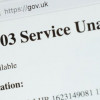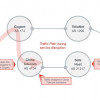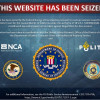How Secure Is Your Brokerage Account?
Q. I'm feeling insecure about my online stock purchase. If the brokerage firm I use goes out of business, how could I prove that I actually own the stock in my account? Is the statement I get each month enough proof that my shares exist? Should I get stock certificates? -- Bonnie
A. Everyone feels a little insecure these days, and it's good to ask questions about the security of your assets. But as long as you take a few reasonable precautions, there is no reason to worry.
A brokerage is like a bank in many respects. It holds assets for you in trust and those assets are insured. But don't take that analogy too far. In the case of a brokerage, "insured" means something different than it means at a bank. Bank accounts are insured for their value, but brokerage accounts are insured for their assets. So if you own 100 shares of Cisco worth $8,000 and your brokerage goes belly-up while the value of Cisco's stock falls from $80 a share to $12, you are insured for 100 shares of Cisco stock, not $8,000. Most investors understand that, at least I hope so. Your question has more to do with making sure that the shares your broker is holding on his books for you would actually be returned to you in the event of a corporate failure.
As you probably know, these days most shares are held in "street name," meaning they are registered in the broker's name, and it's the broker who maintains the records that prove you are the owner. Letting your broker keep the shares in street name is far, far more convenient than registering them in your own name. You don't have the responsibility of keeping track of the stock certificates, and you can sell them immediately should you wish to. That convenience would only be worthwhile, however, if there were no risk that your broker might go out of business taking your shares along with him.
But banks and brokerages rarely go out of business. A far more likely scenario is that a weak broker will be bought out by a stronger firm. Most likely, you wouldn't notice anything but a name change. In the case of a total corporate failure, the Securities Investor Protection Corporation (SIPC) steps in and appoints a trustee to oversee the liquidation of the company and the return of each investor's property. Worst case, you might have to wait a while before you could sell your stock.
The SIPC insures each account up to $500,000, of which $100,000 can be in cash. Most brokers have additional insurance to protect each account -- usually into the millions.
So your first reasonable precaution is making sure that your broker is registered with the Securities and Exchange Commission (SEC) and is a member of SIPC. Most are, but you should check. (If you sent your money to an offshore broker who promised you returns of 18% per month, well, you would be right to worry.) You should also ask if your broker uses a "clearing firm" to process transactions. If it does, the clearing firm must be SIPC insured as well. They are the ones that actually have your shares.
Your other precaution is that you keep good records and check all statements from your broker for accuracy. I'm not a big fan of keeping every scrap of paper a broker sends, but you should have all trade confirmations and at the very least a few recent monthly statements so that in the event of a failure, you can show what shares you own.
If you are really paranoid, you might also want to ask your broker about his computer systems. If those go, things could get very hairy. But any financial institution that expects to stay in business will have redundant computer systems with off-site backup.
Taking physical delivery of stock certificates is a drastic solution. Yes, that puts you in control of your shares and puts your name on the corporation's books so that the company communicates directly with you instead of going through a broker. But stock certificates can get lost or destroyed. Address changes can be mistyped. Safe deposit box keys can be buried by your Weimaraner. And stock certificates make dandy paper airplanes. It's more likely that your share certificates would be swept off to Oz than be irretrievably lost from a registered and insured brokerage account.
You've got enough to worry about. Lose sleep over something else.
Ann Coleman has owned Cisco at $80 and at $12. All in all, she prefers the former. Other stocks she owns can be seen in her personal profile. The Motley Fool is investors writing for investors.
Source:
Fool.com.









































































